Should You Weigh Yourself?
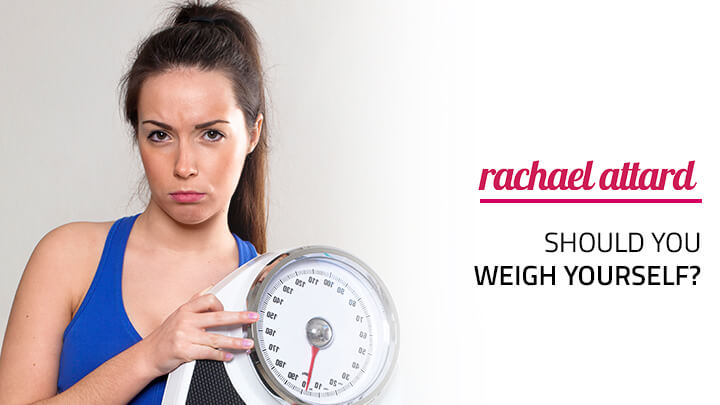
Are you nervous about stepping onto the scale? Maybe you avoid weighing yourself at all, for fear that the numbers will disappoint you. Or maybe you’re over-eager to check your weight daily, even multiple times throughout the day.
Neither extreme is helpful for your journey to weight loss and fitness!
So should you weigh yourself?
Yes, I think measuring weight can be a good thing and can help you stay on track.
But ditch those negative motivations, and replace them with a healthy habit— weighing yourself regularly and consistently.
Here are some tips on weighing yourself and a few other methods you can use to track progress.
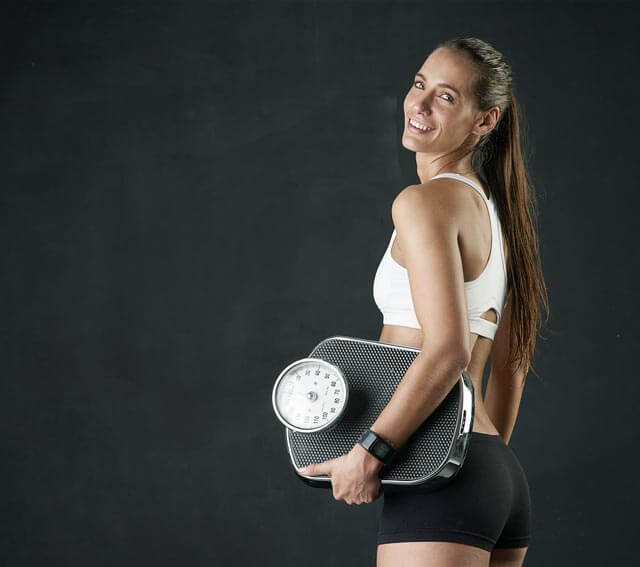
EMPTY THE TANK
Your weight fluctuates depending on the state of your bowels and bladder. Did you know that you may actually weigh a pound or two less after a bowel movement? And a full bladder definitely adds a bit to that number on the scale. It’s always best to weigh yourself when your system is empty.
So here’s the deal. Try to weigh yourself in the morning, after you’ve used the bathroom but before you eat breakfast. Weigh yourself at the same time of day, under those same conditions, every time.
IGNORE NATURAL WEIGHT FLUCTUATIONS
If you have tried weighing yourself at different points throughout the day, you’ve probably noticed that your weight can differ dramatically. Studies show that your weight can actually go up or down by about 3 pounds in a single day. When your belly or bladder is full, you’re heavier. If you are retaining some fluid, you’ll weigh more. If you’re hungry or dehydrated, you might weigh less.
Don’t worry— the extra couple of pounds you might see at the end of the day isn’t fat; most of it is probably water. Maintain an early morning weigh-in schedule and ignore the normal fluctuations of your weight.
UNDERSTAND YOUR MENSTRUAL CYCLE
When you’re going through PMS, you might crave fat and carbs due to changes in hormone levels. While your period won’t directly cause you to gain weight, you might tend to consume extra calories around this time of the month. Stock your fridge and shelves with healthy snacks to curb those cravings.
One more thing about PMS and your menstrual cycle— you may retain some extra water for a few days. Restrict your salt intake to minimize that fluid retention. Stay hydrated, though, and fill your plate with vegetables and fruits.
It is also probably a good idea to avoid weighing yourself during your menstrual cycle. I know many girls cycles are regular but find out more on how to regulate your period here!
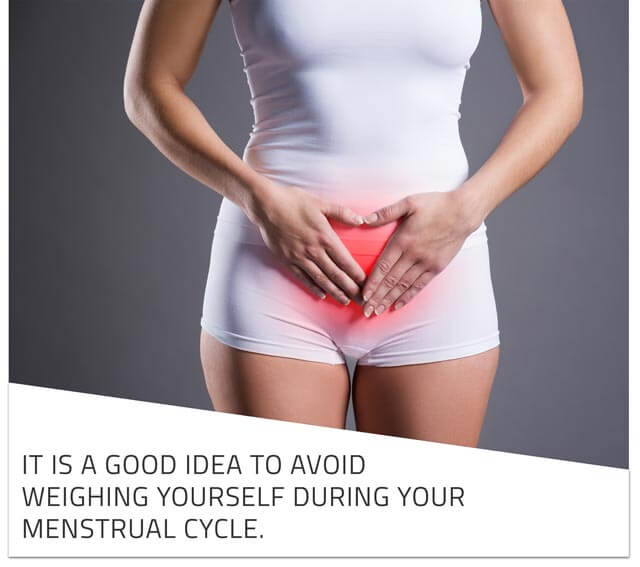
WEIGH OFTEN, NOT DAILY
Some weight-loss programs recommend that you weigh yourself every single day. This habit can lead to an unhealthy obsession with numbers, rather than a focus on overall health and fitness. Of course, you want to see that number on the scale go down; but you don’t need to stare at it every morning.
Instead, weigh yourself every week or two. If you’re really changing your lifestyle and habits, you’ll see the numbers go down steadily.
UNDERSTAND BODY COMPOSITION
You’ve probably heard that muscle weighs more than fat. That’s not exactly true; but muscle is denser than fat, and it takes up less space. So jumping on the scale at the end of a hard workout week might not be as encouraging as you hoped. You may have burned fat and replaced it with denser muscle, resulting in a number that’s higher than you expected.
Instead of getting discouraged, step off the scale and find a fresh way to gauge your fitness level. If you really replaced fat with muscle, you should be able to tell the difference by looking at your body.
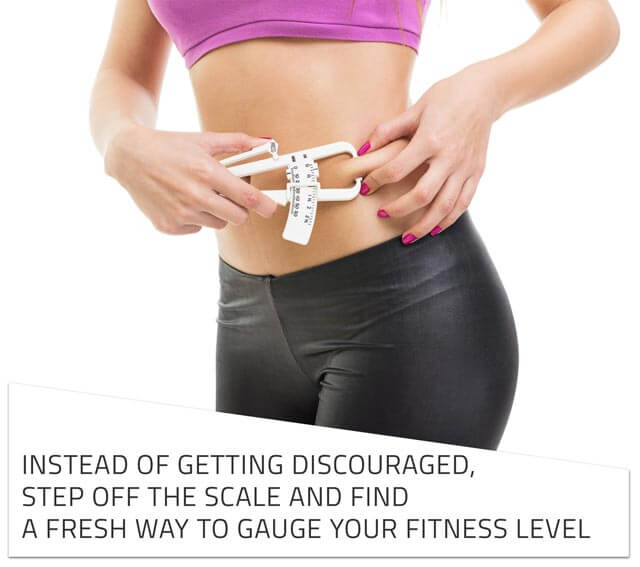
FIND NEW BENCHMARKS
Remember, losing weight and getting fit is about much more than a number on a scale. It’s also about the way you look and the way you feel in your body. Sometimes, the scale doesn’t show the beneficial change that’s taking place.
Here are some other things you can try to measure your progress.
- Take “Before and After” photos. You might cringe at the view in the first photo you take, but don’t delete it! Keep it for comparison. Snap a new photo each week; and as you follow your diet and exercise plan, you’ll begin to see positive changes in your body’s appearance. Wear the same outfit each time— perhaps a sports bra and yoga pants.
- Schedule body fat measurements. Ask your doctor or
certified personal trainer about the best location or method to have one done. Usually, the procedure involves measuring the skin folds in several areas of the body with a skin caliper. Then the technician enters those measurements into a special formula to reveal your body fat reading. You can have these measurements done every couple of months to track your progress.
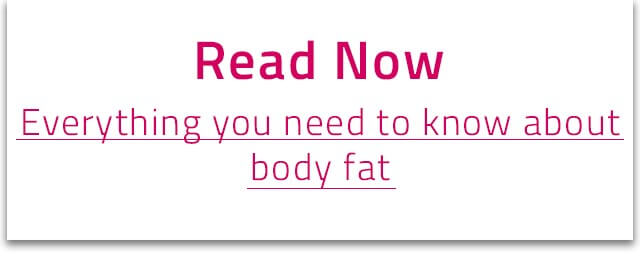
- Measure your waist and thighs. For many women, the waist and thighs are problem areas where fat can build up. At the beginning of your weight loss journey, measure your thighs and waist and record those numbers. You can measure your upper arms, too, if that’s a point of interest for you. Every week or month, take your measurements again, record the numbers, and celebrate the changes!
- See how your clothes fit. As you start to lose weight and your body composition starts to change, you may not notice it on the scales. A great way to tell if your body is changing is by taking note of how your clothes fit. If they’re not feeling as tight, you’re definitely making progress, regardless of what the scales say!

Whether you’re measuring, taking photos, or weighing yourself, keep in mind that every woman is different! Don’t compare your results with someone else’s— focus on you, and what healthy weight loss means for you as a woman.
How often do you currently weigh yourself? What other methods could you use to measure your progress? Try some of these ideas and see what works for you!
Love Rachael xx

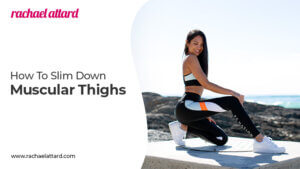
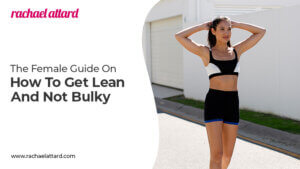
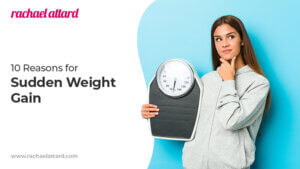


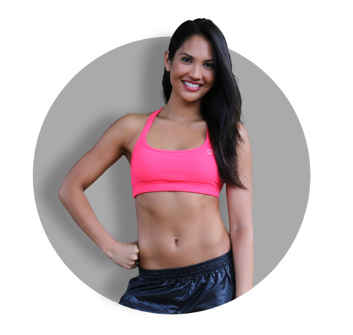
Hi rachael,
I’m currently doing your lean legs program and I am a lot more active than the program and I wondered what your thoughts or beliefs are on over exercising? Can that be done and can it be detrimental to weight loss?
Kind regards
Erin
Hi lovely,
Feel free to combine the program with some extra workouts if you wish (e.g. Pilates, yoga, boxing, swimming) or add ankle weights, gliding discs and resistance bands and increase the number of repetitions to make your workouts more challenging.
It might sound unlikely, but it IS possible to train too much. Your body needs time to recover, otherwise you can do some serious damage (e.g. hormonal imbalances and loss of menstrual cycle due to stress or a very low body fat percentage). Some overtraining can take just a few days to recover from, but severe overtraining can take some months. With super intense workouts such as Crossfit and HIIT becoming more popular, I think it’s really important to know when you are overtraining and really listen to your body.
Love,
Diana